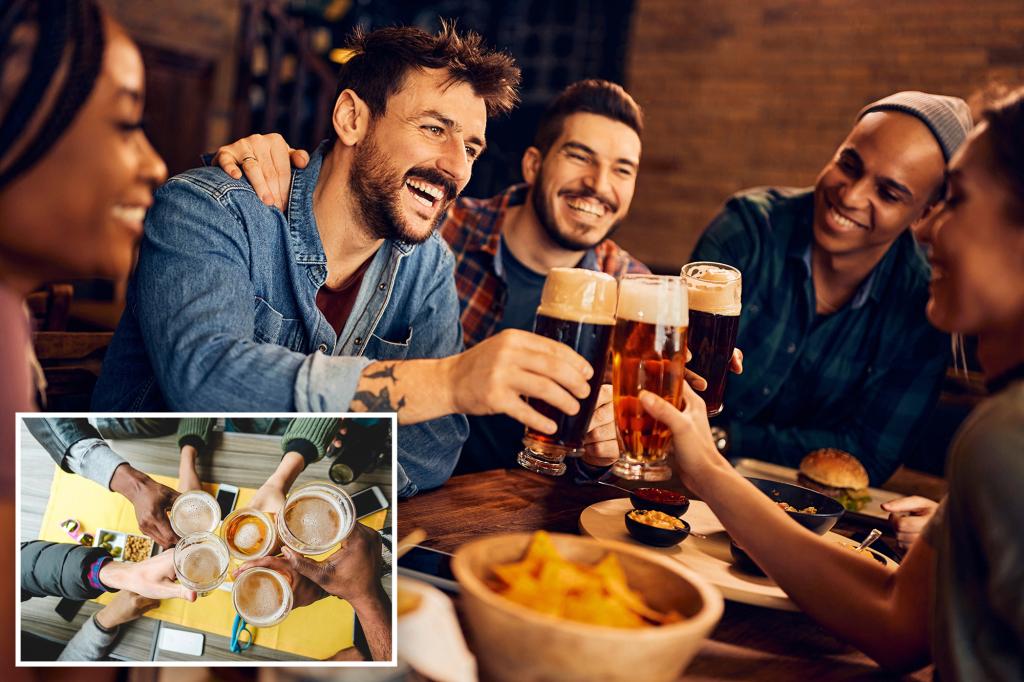Happy hours are sacred rituals for many American workers, but a handful of states continue to ban them.
For many 9-to-5ers, happy hours are a time when workers can grab affordable alcoholic drinks and let off steam with their co-workers or friends.
Yet there are still some states where these casual get-togethers are forbidden – and they’re not tied to one region.
Many of these bans began in the 1980s as a response to drunk driving.
Here are seven states in which happy hours are outlawed.
Massachusetts
The Bay State was one of the first U.S. states to ban happy hours.
In 1984, a 20-year-old woman named Kathleen Barry was killed in a drunk-driving crash, prompting legal reforms in Massachusetts.
State law forbids free or discounted drinks, including two-for-one offers.
The ban is not without critics. Massachusetts state Sen. Julian Cyr spoke out against the ban in July, the Fox affiliate in Boston reported.
Cyr said happy hours would bring people back to bars and restaurants that have been struggling since the pandemic.
Alaska
Alaska law prohibits the sale of alcohol for “less than the price regularly charged for the beverages during the same calendar week,” according to the Alaska State Legislature’s website.
Unlimited drinks, two-for-one specials and drinking contests are also off-limits.
Rhode Island
Happy hours are prohibited under Rhode Island law, per the state’s Department of Business Regulation.
“In states that ban happy hours, the casual connections that can spark mentorship and networking vanish unless leaders intentionally replace them.”
“Daily specials,” or fixed-price drinks available all day, are still allowed.
The ban originated in 1985 due to concerns about drunk driving, according to Rhode Island Monthly.
Utah
Unlike other states, Utah didn’t pass its happy hour ban until 2011.
Utah outlaws the sale of alcohol at any “special or reduced price that encourages overconsumption or intoxication.”
Vermont
The Vermont Brewers Association (VBA) notes that happy hours are currently banned in the Green Mountain State.
“Under current law, Vermont establishments can’t reduce drink prices for a limited time, but they can reduce them for an entire day,” the VBA states.
North Carolina
The North Carolina Alcoholic Beverage Control (ABC) Commission outlaws the sale of alcoholic beverages through happy hour promotions.
Drinks must be sold at one price for a full business day, according to the commission’s website.
North Carolina passed its ban in 1985, but its restrictions remain looser than most.
While “true happy hours” are off the table, businesses in the Tar Heel State are still permitted to offer all-day drink specials.
Oklahoma
The Sooner State also follows a model similar to North Carolina’s ban.
Bars can’t sell free or below-cost drinks, per the Oklahoma Restaurant Association, and specials must remain at least 6% above cost.
Lindiwe Davis, a New York-based workplace culture expert, told Fox News Digital that happy-hour bans can severely impact the office environment.
“In states that ban happy hours, the casual connections that can spark mentorship and networking vanish unless leaders intentionally replace them,” she noted.
Davis suggested that managers still create social spaces – such as coffee meetups or team lunches– in states that ban happy hours.
“More employees are still looking for camaraderie, coalition and community. And access shouldn’t depend on whether your state allows discounted cocktails,” Davis said.
Steve Mehr, founding partner of personal injury law firm Sweet James, told Fox News Digital that he’s “seen firsthand the devastation drunk driving causes.”
“From that perspective, anything that reduces excessive drinking before getting behind the wheel is worth examining,” Mehr said.
“People who are determined to drink will find a way.”
But the California-based attorney called bans a “blunt instrument” that shifts, rather than solves, the problem.
“People who are determined to drink will find a way,” Mehr said.
“What truly makes a difference,” he added, “is accountability, stronger enforcement, better education and creating a culture where friends don’t let friends drive impaired.”
Read the full article here

